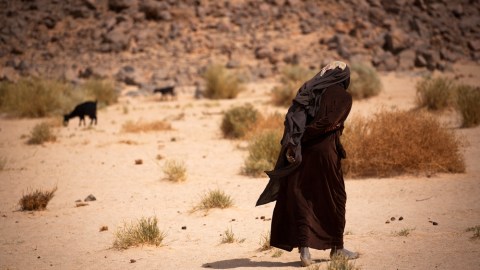How Climate Change Enables Islamic Militancy

What’s the Latest Development?
The increasing desertification of Africa, thought to be a product of climate change, creates resource shortages which in turn give rise to armed militas intent on controlling their distribution, argues Ohio State University professor Geoffrey Parker. “In his new book, Global Crisis: War, Climate Change and Catastrophe in the Seventeenth Century, Parker writes that ‘the experience of the seventeenth century shows that long-term turbulence and unreliability of the weather inevitably produces calamitous outcomes for humanity.’ Civil unrest, conflict, disease, government collapse, and commercial disruption are among the dire consequences.”
What’s the Big Idea?
Experts say that social disruptions larger than the recent protests in Brazil and Turkey are coming Africa, partly as a result of disaffected populations whose livelihoods are vanishing with the changes brought on by global warming. Members of the Maitatsine sect, for example, are considered the forerunners to Boko Haram, an Islamic militia operating in northern Nigeria. The group includes victims of ecological disasters that left them in “a chaotic state of absolute poverty and social dislocation in search of food, water, shelter, jobs, and means of livelihood.” In the view of Nigerian security officials, religious violence in the country is strongly correlated with environmental stress.
Photo credit: Shutterstock.com
Read it at the Christian Science Monitor





